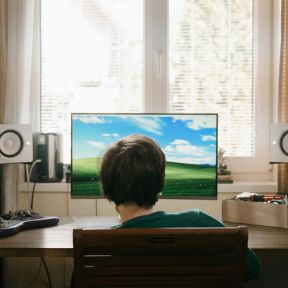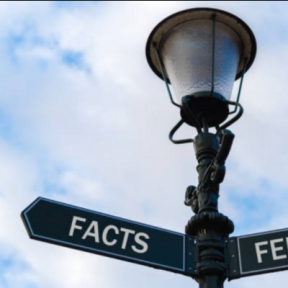
Pornography
Pornography, or porn, is any sexually explicit material—written, visual, or otherwise—intended to sexually arouse. Pornography has existed for millennia, and today it remains widely available in books, magazines, and audio recordings, but is most readily found and accessed online: The world’s largest porn site claims that in 2018, it had a daily average of 92 million unique viewers, the vast majority of them males.
How does the ubiquity of porn affect individuals and their relationships? Is it a harmless pastime or a potential addiction? Is it a way to add spice to a couple's sex life, or a relationship destroyer? The debate over of whether pornography is detrimental to sexual development and mental health continues to rage as psychologists and others evaluate the validity of “porn addiction,” a supposed disorder that has no universally accepted diagnostic criteria and is not included in the DSM-5.

Pornography's many detractors argue that it damages intimacy and relationships, and promotes the subjugation of women. Nevertheless, some experts suggest that it may be a way for some men to satisfy sexual fantasies they are not comfortable discussing with their partners. Some research suggests that porn use may help stem sexual offenses, promote a greater understanding of sexual diversity, and help people better access their own desires and sexuality—which they can then communicate to their partners.
When one stops to think about it, it’s odd that so many humans seem to enjoy watching, and listening to, other humans have sex. Evolutionary research suggests it may be a vestige of an earlier stage in human history: The loud cries many females make during sex, or “female copulatory vocalization,” may have served in early primate communities to attract others to join in; some research suggests that such promiscuous mating may have been common in the earliest human communities as well.
Well over 90 percent of men report at least occasional use of porn on surveys, and while studies of female porn use are seen as less reliable because many may be more reluctant to report honestly, estimates are that between 20 and 50 percent of women use porn at least occasionally.
In surveys of male porn habits, most report that they use it for arousal or sexual satisfaction. But a smaller percentage reveal that they look at pornography to escape uncomfortable emotions, relieve stress, address boredom, or forget their daily problems. These men, research finds, may be more likely to use porn impulsively as a coping strategy, and to find their personal use of porn to be problematic.
Research on female porn use finds that they are more likely than men to empathize with the characters in scenes and not just to focus on the sexual acts portrayed. Some women also report feeling better about their bodies after seeing similarities between themselves and female performers. Studies also reveal cognitive dissonance among women: They admit to finding porn arousing but are more likely than men to believe that viewing it is inappropriate.

While some people are comfortable with their use of porn, it can be a deep source of distress for others, both male and female, who report feeling confused, embarrassed, conflicted, or ashamed about their own use, even if it is relatively minimal in frequency. Experts widely agree that someone’s use of porn is a problem if he or she believes it is, and that such a belief is largely determined by one's religious, familial, or cultural values.
Many psychologists question whether “porn addiction” is a valid clinical diagnosis. Instead, some studies show, individuals who believe they have an addiction to porn may not in fact view it more than other people, but may hold religious or cultural beliefs that make them feel more distressed about it. Other research finds that seeing oneself as a porn or sex addict may be correlated with experiencing anxiety or depression.
It is widely understood that many if not most teens view porn. And while parents and other adults may worry about porn serving as sexual education for many young people because of its unrealistic depictions of sex, some research suggests that even as porn use has risen among teens, dangerous sexual behavior in the age group has actually declined.
The belief is generally not accurate. In studies, men who used porn frequently and experienced ED were much more likely than others to hold conservative views about sex and religion; the shame they may have felt about their porn use was seen by researchers as more likely to have contributed to their ED than their use of porn itself.

There is no question that porn can become a source of conflict in committed relationships, especially when one partner has hidden their porn use because they know or suspect that the other would disapprove or consider it an act of infidelity. Experts encourage couples to discuss porn and other potentially divisive issues before marriage to avoid potentially disruptive arguments in the future.
Joint counseling can help partners understand each other’s true sexual interests and negotiate what will and will not be acceptable in their relationship going forward. But it is more likely, many psychologists believe, that disputes about porn use will be found to be driven by other, more critical sexual or communication issues that need to be addressed.
In surveys, most people say they do not think that the use of porn by people in committed relationships is a form of infidelity, but those who are single, who are more religious, who don’t use porn themselves, or who have low self-esteem are more likely to agree that it is. In the end, experts advise, if one’s partner believes that it’s a betrayal, then that concern must be addressed.
Humans need positive social interactions that provide physical affection, and when relationships don’t provide the affection we feel we need, we will seek substitutes for that deficit, sometimes in porn. Experts point to research confirming this theory, known as "affection exchange" as evidence that problematic porn use in relationships is typically a symptom of deeper issues.
When someone discovers a partner’s porn use, especially if they find the content of the material to be offensive, it can present a serious challenge to a relationship. Some therapists, though, suggest that couples see it as an opportunity to discuss each other’s erotic identities, fantasies, and differences, and to find common ground through open and honest sharing.
Talking about sex is extremely difficult for many if not most couples, even generally happy ones. Talking about porn may be even more uncomfortable. Partners who can come to the conversation with open minds, a joint commitment to reach agreement, and a willingness to seek outside help if necessary, tend to emerge stronger.














